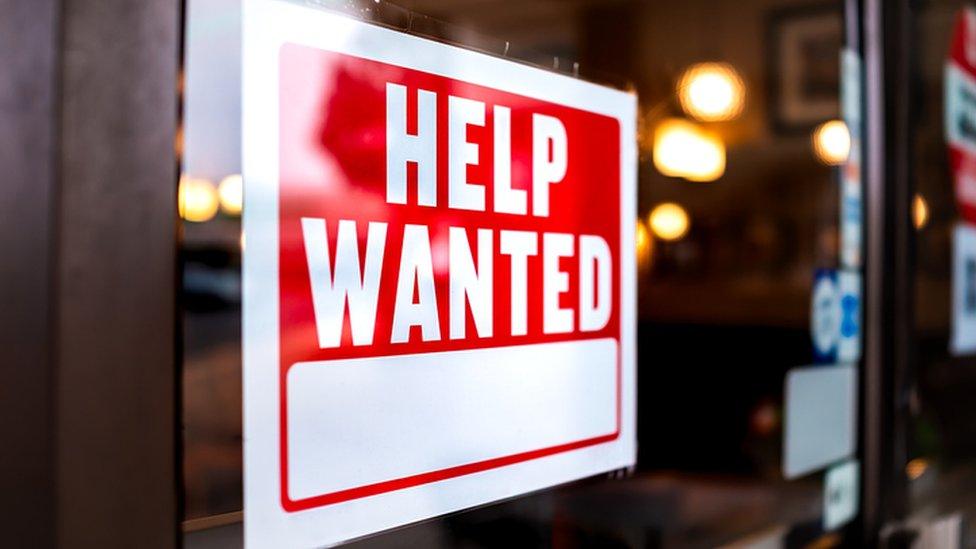RBS report: Hiring activity 'still rising sharply'
- Published
- comments

Recruitment of both permanent and temporary staff continued to rise sharply in Scotland last month, according to a survey.
The latest RBS Report on Jobs found permanent placements rose at their quickest pace in the last seven months.
And the rate of increase in temp billings remained close to a survey record, despite slowing on the month.
Recruiters attributed the rises to the reopening of the economy amid further relaxation of Covid-19 restrictions.
However, they continued to report difficulties in finding candidates, as the supply of staff plummeted while vacancies continued to surge.
For permanent jobs, IT and computing registered the quickest increase in vacancies, followed by engineering and construction.
Blue collar posts saw the strongest rise in the number of temp vacancies, followed by IT and computing.
Pressure on pay
RBS said the mismatch between demand and supply placed further upwards pressure on rates of pay.
Wages for permanent new joiners in Scotland increased for the eighth month in a row in July, and at the second-fastest rate on record (behind July 2014).
Average hourly pay rates for short-term staff also saw one of the steepest rises in the survey's history.
Temp pay also rose across the UK during July, with the rate of increase far outpacing that seen in Scotland.

Royal Bank of Scotland chief economist Sebastian Burnside said the latest data pointed to another strong month for the Scottish labour market.
He said: "However, recruiters again noted challenges in finding candidates, as the supply of both short-term and permanent staff plummeted again amid reports of surging demand.
"This mismatch between supply and demand is likely to pose further challenges in the months ahead.
"But overall, the labour market is in a good position, recouping any lost ground at a rapid pace, and hiring activity is showing little-signs of any considerable slowdown."
Last month, a Scottish Chambers of Commerce survey suggested Scottish businesses were seeing "shoots of recovery" for the first time in over a year as Covid-19 restrictions began to lift.
Its latest quarterly economic indicator indicated more positive growth across all sectors, with firms reporting substantial rises in confidence and domestic sales.
However, they also expressed greater concern over inflation.
On Thursday, the Bank of England warned inflation will hit 4% this year, higher than previously forecast and double the 2% rate it aims for.
However, it added that the recent surge in consumer prices would be a temporary phenomenon as the UK emerges from the pandemic.


- Published8 July 2021

- Published12 July 2021

- Published1 July 2021
